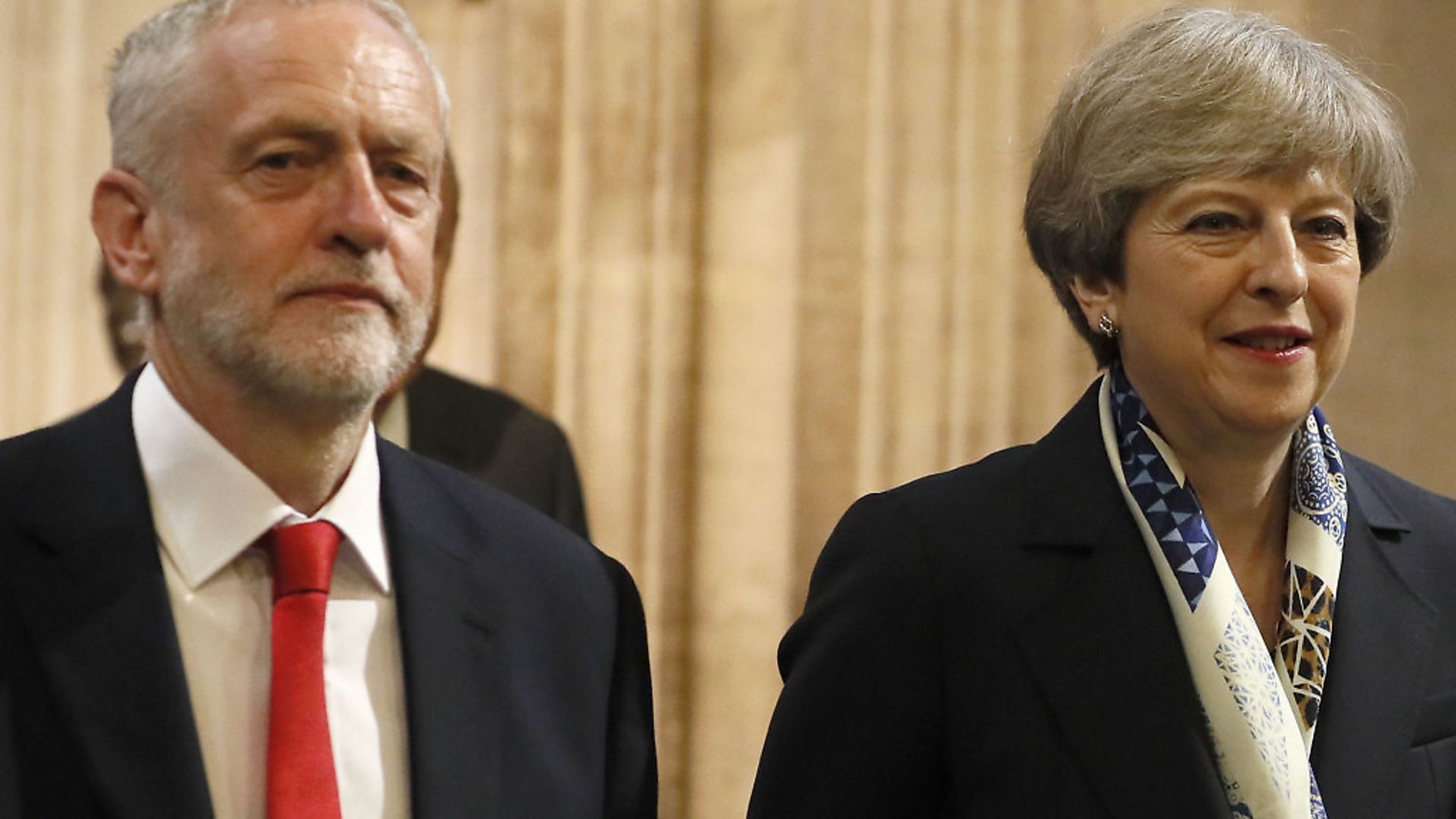
ANDREW ADONIS explains why the Labour Party would lose out in a coalition with the Conservatives.
‘England does not love coalitions’ is one of the most famous aphorisms of British politics. Jeremy Corbyn doesn’t need to take Benjamin Disraeli’s word for it. He just needs to have a quick word with Nick Clegg when the former Lib Dem next passes through Heathrow from his Californian exile.
Clegg when the former Lib Dem next passes through Heathrow from his Californian exile.
Clegg broke every record for political disaster-mongering. Inheriting from Charles Kennedy a flourishing party with 63 seats, he bequeathed it eight years later in 2015 with just eight seats, after five years of coalition with David Cameron. Last week’s local election revival of the Lib Dems still leaves the party with a fraction of its pre-Clegg support and representation. Fierce competition from Greens and Tiggers in its core liberal territory shows how fundamentally weak the party still is.
The Cameron-Clegg coalition was the first in England in peacetime since Ramsay MacDonald’s ‘national government’ of 1931. That completely wiped out MacDonald’s ‘National Labour’ party and shredded its leader’s reputation, which had previously been stratospheric as the architect of Labour’s extraordinary ascent to government in the 1920s, replacing the Liberals as England’s main centre-left party.
Earlier coalitions were equally destructive of their smaller partners. The Lloyd George coalition destroyed his Liberal faction at the hands of the dominant Conservatives, despite LG’s previous reputation as wartime victor.
The Liberal Unionists, who broke away from Gladstone’s Liberals over Home Rule for Ireland in the 1880s, are now a historical footnote. And no one then or now has a good word to say about the Aberdeen coalition, and the disastrous Crimean War over which it presided, which Disraeli was inveighing against in his famous remark of 1852.
The tendency of coalition governments to shred their smaller partners is a general international and historical rule. Angela Merkel is the absolute master of the art, having shredded a string of coalition partners in her 14-year reign in Berlin, including the once-great SPD in two separate coalitions.
Indeed it was Merkel who gave crucial advice to Cameron which led to the formation of his coalition. When Cameron told her before the 2010 election that he might fall short of a majority, she counselled him: “David don’t worry, it’s simple. You get hold of the smaller party, you give them a few baubles at the start, then you destroy them.” Which he proceeded to do.
The underlying power relations of coalitions always make this outcome likely. By definition the larger party has a stronger position and therefore the greater power to exploit every twist and turn of government after it has weathered its moment of maximum vulnerability – its absence of a majority with which to claim office – which gave rise to the coalition in the first place.
So it would be with any quasi-coalition deal between Theresa May and Corbyn over Brexit. Whatever the terms of the initial deal, the Tories would thereafter hold the whip hand as the larger party. However, there is a powerful additional force which makes coalitions so problematic for smaller parties in Britain – our first-past-the-post (FPTP) electoral system. In both Britain and the United States, FPTP, because of its high threshold for success in each individual constituency and its winner-takes-all tendency across the country at large, generally produces single party national majority outcomes to elections. On the rare occasions when it fails to do so, it nonetheless incentivises the largest party to bid for outright victory at the following election and to behave accordingly – which Cameron did from the moment he formed his coalition with Clegg in 2010, with devastating consequences for the Lib Dems.
It would be the same with any May-Corbyn deal. Spawned by an unusual situation where a Tory government lacks a majority, exacerbated by its divisions on the biggest issue of the day, all the incentives will be to pursue search-and-destroy against Labour from the moment of any agreement, especially once the Tories acquire a half-competent leader in succession to May.
There is another big problem with coalition – political principle. Because the agenda is inevitably set by the bigger party, with the smaller party or parties seeking to moderate them in the interests of their voters and principles, coalitions are invariably unpopular with the supporters of the smaller parties. Often massively unpopular.
I doubt any coalition in history has suffered more unpopularity than would greet a Brexit deal in the Labour party, which overwhelmingly hates Brexit. It could lead to a re-run the 1920s in reverse, with the Liberals replacing Labour. Which would, in a world of miracles, give Clegg the last laugh.









